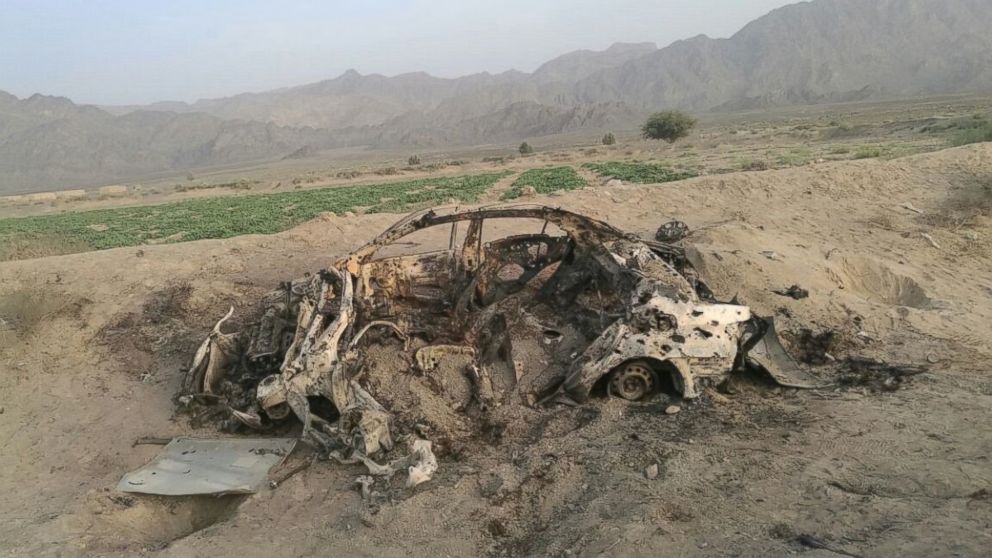Top Taliban Leader Killed in a 'Defensive Strike,' Pentagon Says
Mullah Mansur was planning attacks against U.S. in Afghanistan, U.S. says.

— -- The U.S. drone strike in Pakistan that killed top Taliban leader Mullah Mansur on Saturday was a “defensive" strike because he was actively involved in plots against U.S. and coalition personnel inside Afghanistan, the Pentagon said today.
The airstrike conducted in southwestern Pakistan was not carried out as a counter-terrorism strike, according to Pentagon spokesman Capt. Jeff Davis, who noted that multiple unmanned drones involved in the strike belonged to Special Operations Forces operating under the command of U.S. Forces Afghanistan.
As such, they were under the current rules of engagement for airstrikes that apply to U.S. military forces in Afghanistan, he said.
Those rules allow for airstrikes in Afghanistan for three reasons: strikes for defensive purposes if there is a direct threat to U.S. and coalition forces, against remnants of al-Qaeda or in extreme situations to prevent overruns of key positions. In effect since 2015, the rules no longer allowed strikes to be conducted against Taliban members because they belonged to the group.
Mansur was involved in specific and imminent threats to U.S. and coalition personnel in Afghanistan, not just past planning, according to Davis, who declined, for operational reasons, to disclose any specifics about the threats.
“This was considered a defensive strike and given the location required a higher level of approval,” Davis said. “This was an individual who was specifically targeting U.S. and coalition personnel and had specifically engaged in operations in the past that resulted in U.S. and coalition personnel being killed."
On a trip to Vietnam, President Obama announced today that the U.S. had confirmed that Mansur was killed in a strike that he had authorized. Mansur and a companion were killed after multiple drones targeted the vehicle they were riding in, located in a remote part of Pakistan just south of the border with Afghanistan.
The strike against Mansur appears to be the first “defensive strike" to have taken place inside Pakistan for rules that seemed to only apply for Afghanistan.
"We can adjust authorities or take things higher up the chain of command to get approvals and that’s what we did in this case,” Davis said.
The timing of the airstrike had to do more with opportunity and in a place where civilian casualties could be avoided, he said. “This was deliberately carried out in a place that was remote and not near other things that would have raised a risk for collateral damage."
As for reports that Pakistan officials were not notified beforehand, Davis said the United States and Pakistan “have an ongoing relationship."
"We talk to them regularly," Davis said. "We’ve talked to them about this individual in past situations, as well as the present.”
“When we see anybody -- whether it's Taliban or anyone else -- doing things of a threatening nature to U.S. and coalition forces, anyone who does this needs to be very careful," Davis said. "We will take action to remove them from the battlefield.”




